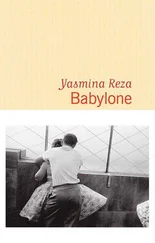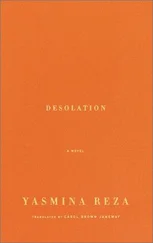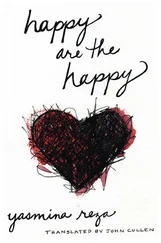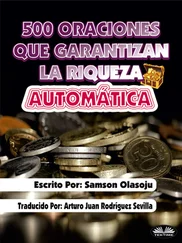“What do you make?”
“Everything.” She laughs. “Last weekend, for example, I made four zucchini loaves for my sister's twenty-fifth wedding anniversary.”
“I see.”
“When I say I made them, it's the machines that do it, I do nothing. Is it good? Add a little salt if you want.”
It s very good.
“Some women are crazy about shoes or beauty products, me, I'm crazy about electrical appliances. When I got my first washing machine early in my marriage, we'd never had one for want of space, I switched on the long-wash program. I sat beside it on a stool and watched the whole process, prewash, wash, starching, spinning … up to the final click. I learned all the sounds by heart. These days I can detect the slightest suspicious sound. The same for the dishwasher. When I open a magazine I don't look at fashion or gossip, I look at ‘What's New?' in the household electricals section. I'm very choosy, either it's love at first sight and I'm round at the store the next day, or I wait for years before making up my mind in the hope of a better performance or a new image. The image is very important, I'm in a good position to know this, being in business myself. Once I've decided on an appliance I'm quite capable of hitting the roof if they don't have the color I want. My kitchen is my home, I like to be the boss in my kitchen, making all my appliances toe the line gives me a buzz. I read the instructions thoroughly, a set of instructions in too many languages infuriates me, and what's more it's always the French that comes last. Instructions that don't explain enough irritate me as well, lots of things irritate me, for instance I had a blender that would make juice but you had to add an extra gadget and keep it on the top, I like it when the machine works all by itself. I made four zucchini loaves last weekend, do you know how long it took me? A quarter of an hour. I wash the zucchini, I chop the ends off — I also have the correct knives for this, even for a trivial little recipe — I set up the KitchenAid with the attachment for round slices, I select the cutter for medium slices, neither too thin nor too thick. The slices fall into the big container, five or six at a time, you have to keep pace with the machine, I don't want to stop it, it's a battle, between it and me. When the pot's full I always feel it's a miracle, I add olive oil, basil — I don't use a spoon, I use my hands, I've picked that up from American TV serials, American women use their hands — salt, pepper, the best chili pepper, I knead it, I put it on one side, I take my blender, put in my crème fraìche, my eggs, I add some tarragon, I mix everything together. I oil my baking tins a little, put several slices in the bottom and a sprig of basil to decorate it, when it's fully mixed, I taste it, I pour in the mixture and put it into the oven that's already preheated. It takes me a mere fifteen minutes and I've almost nothing to do. Every evening I set the time for my coffee. When I get up the first thing I can smell is the aroma. Really fresh, hot coffee, measured and blended to perfection. That's what's so wonderful, it's as if someone had been taking care of you while you were asleep and then discreetly gone away.”
“Yes,” murmurs Adam.
“I'm going to make a salad,” she says, getting up. “A tomato salad, would that suit?”
Adam acquiesces and while the idea of living in a log cabin in Canada with nothing but an ax lingers and fades, he wonders whether he, too, wouldn't like to get up to the smell of coffee, wonders whether it wouldn't be better to be alone like Marie-Thérèse with the Krups coffee machine rather than alone at the ravaged breakfast table in the morning, facing Irene's teapot, the emptied bowls of chocolate, the Cap'n Crunch box, the half-eaten pieces of toast, without any visible sign of attention to his own existence other than a cup and saucer taken out of the cupboard and set down any old where. Marie-Thérèse has sliced the tomatoes with one of her special knives, and as she stirs the salad dressing in the bowl Adam notices her bosom quivering. The quivering of Marie-Thérèse's bosom inexplicably evokes a certain mountain climate, the opaque and shifting humidity of trails of mist, as if life should resolve itself into a single bleak image. The bleak rain or these billowing breasts in the long, narrow kitchen, beyond which the future lies hidden.
She has resumed her seat and put the salad bowl on the table between them, and smiles at him. He responds, as he had done in front of the big cats' house, to this silent signal. He watches her mixing the tomatoes, serving him delicately. She cuts some bread, it's bread with a bit of brioche flavor, it's Andreas's bread, she says, he loves it, I always have some in the house, I freeze it. He sees them, her and him, sitting at table in the long, narrow kitchen, poised between the lake of Viry-Châtillon and Route Nationale 7, he thinks of men sitting at tables in long, narrow kitchens, amid the wilderness of the cities, eating a tomato salad, an omelette, or anything quite ordinary, and thinks help me, my God, to find the words. I'll be happy to write pulp fiction to earn my living, I don't see anything wrong in earning my living by calling myself Jeffrey Lord or Michael Brice, I'll be happy to forge ahead into the dark with my voyager through infinite space or, like Goncharki, with cops who never fuck for less than six hours at a stretch, I'll be happy to write machine gun for the guy going back to barracks, I'll be happy in future to write a shiver ran down his spine , I don't give a damn. Just grant me a secret notebook and help me to find the words to tell the truth. The medicines, the terror of decline, the food processor, Marie-Thérèse's jeans, the square of window at the end with the flapping awning. The truth with no wish, no desire for originality, without any desire at all. It doesn't matter if I'm a loser. In the morning I listen to the unstoppable radio getting excited about the great changes happening in the world and I think, you too should get excited, for heaven's sake, about the great changes happening in the world, that's what's expected of a writer, he should take note of History's fallout. But I no longer see any subject matter in the great changes happening in the world. I used to think I could when I was bonding with the prevailing culture, I don't anymore. The great changes happening in the world don't make any difference to what I am. At best they distract me from myself. Events are like the opium of forgetfulness, when I'm alone in the morning I switch on the appalling radio so as to be engulfed by events. Great events console me, they serve as alibis for my obscurity, you can't compete with global tragedy. Great events help to pass the time, nothing more. In my secret notebook I want to give an account of what doesn't change, or changes very little, or changes in an invisible, secretly cruel way. It doesn't matter if I'm a loser. My word, you were hungry, says Marie — Thérèse.
“It's true, he admits, “I was cold and hungry. You gathered up apiece of flotsam, Marie-Thérèse.”
She's on her feet, she takes several cheeses out of the refrigerator and arranges them on a small tray. They don't look terrific but they're good, she says. After that I have fruit or a raspberry sorbet. Shall I open another bottle?
“Fine. Flotsam that I am, I'll try to keep my end up.”
“What were you doing at the menagerie?”
“Nothing.”
“It's a bit odd, all the same. In this weather.”
“What's that?”
“It's chabichou. Goat.”
“So, this letter from Alice.”
“After dinner.”
“Why did you divorce?”
“Because it wasn't working anymore. Why do people divorce?”
“It takes more than that.”
“It's a good reason all the same.”
Читать дальше












